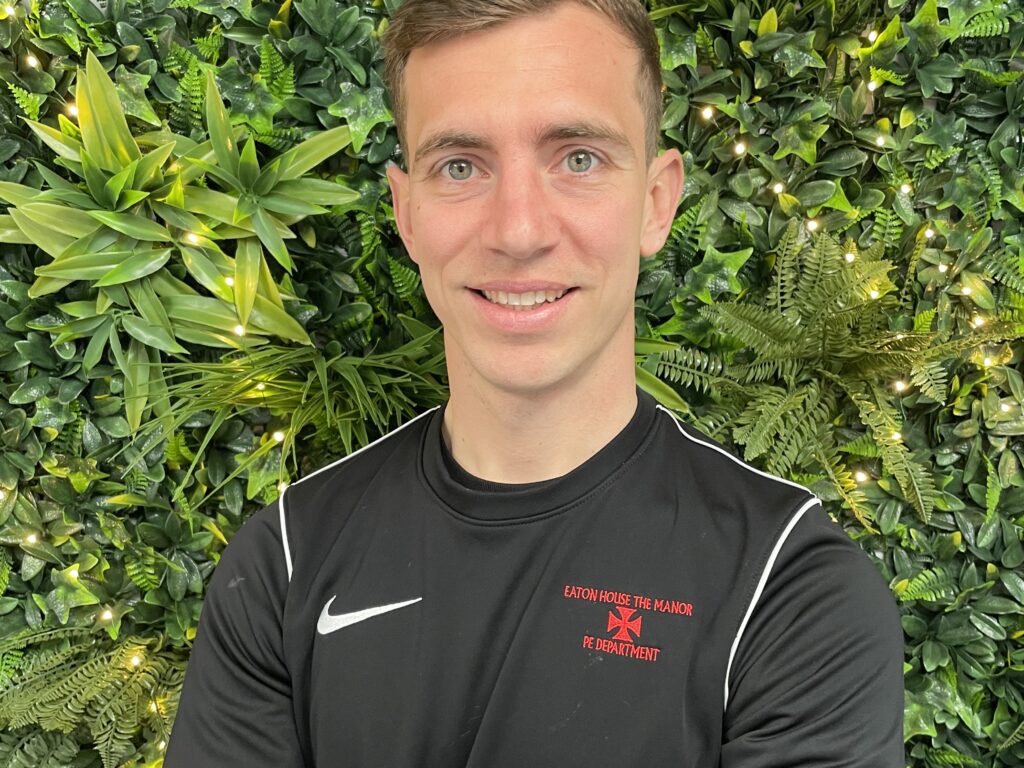A quiet revolution is taking place at Eaton House The Manor Pre-Prep School, where a culture of support through coaching is being offered by staff, for staff, for the first time.
Sam Wheeler, Head of Sport at the Pre-Prep, proposed the initiative after developing a passion for professional coaching while attending a Leadership and Management course at Dukes, the parent company of Eaton House Schools.
“Part of the course involved four hours of personal educational coaching, and I absolutely loved it,” says Sam. “It’s very rare to get time to focus on yourself and your goals. Schools are incredibly busy places, with little opportunity for self-reflection unless it’s scheduled. You go from assembly to lessons, to afternoon activities and marking—these coaching sessions allow for a ‘big exhale,’ if you like.”
The course, as Sam freely admits, “unlocked something” in him. “I’ve always been inquisitive and asked a lot of questions, so it felt natural to sit down with staff and do the same. It’s really valuable to take time to assess the pressures and stresses we all experience nowadays, and I thought this could be beneficial for the whole school.”
Returning from the course, Sam shared his enthusiasm with David Wingfield, the Headmaster of the Pre-Prep, who was very open to the idea. As a result, it was decided that coaching and personal development would be available to any staff member who requested it.
Since December, three staff members have been early adopters of the initiative. The sessions, which are private and confidential, are timetabled weekly and treated with the utmost seriousness. Sam emphasizes the importance of asking questions in the right way.
“I ask open-ended questions, and I have to build trust by assuring the person I’m coaching that this is a private, safe space,” he explains. “It’s all about relationships—getting people to trust you so they feel they can talk openly and honestly. The key to coaching is inviting people to become their own problem solvers.”
“Executive coaching is a collaborative process where we sit down with staff to help them unlock their potential,” he adds.
Sam highlights four main benefits of coaching:
1. Empowering staff – Coaching helps individuals develop self-regulation, problem-solving skills, and accountability, allowing them to take ownership of their personal development rather than relying solely on top-down directives.
2. Improving communication and relationships – Coaching encourages active listening, open-ended questioning, trust-building, and collaboration.
3. Enhancing teaching and learning outcomes – Growth and strength emerge from constructive feedback, leading teachers to refine their practice.
4. Supporting well-being – Coaching creates a structured space for support, helping staff manage stress, set goals, and develop strategies for challenges.
“There are clear boundaries,” Sam notes. “We have coaching contracts that define what can be discussed. Any issues that should be addressed with senior management remain outside the scope of these sessions.”
Sam is now working towards a Level 7 qualification in Coaching and Mentoring—the highest level awarded by the Institute of Learning & Management (ILM)—and is excited about expanding the initiative.
“I’m looking forward to opening up coaching to the Middle Leadership Team, including Year Coordinators and Subject Coordinators, in the hope that a positive coaching culture and its benefits will filter through the school,” he says.
“People open up over time and over multiple sessions,” he reflects. “It’s like a jigsaw puzzle—you start with the edges and gradually fill in the pieces. But the final piece at the centre is the most important. I’m so proud to be part of this journey.”




